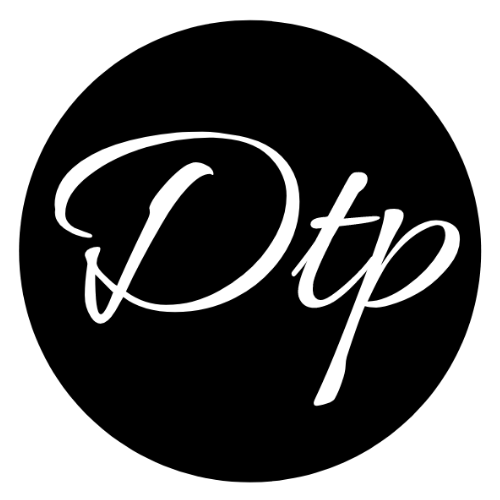DSST Ethics in America Study Guide
- DTP Success Team

- Apr 6, 2022
- 4 min read
Updated: Feb 14, 2024
Preparing for the Ethics in America DSST Exam
If you're gearing up for the Ethics in America DSST exam, our study guide provides invaluable insights into what to expect on test day.
Streamlined Study Approach
Our study guide helps streamline your preparation efforts by pinpointing key topics likely to be covered on the exam.
Focused Study Guide for Success
Using our study guide, you can focus your efforts efficiently and effectively, ensuring you're thoroughly prepared for the Ethics in America DSST exam.
Table of Contents
1. Ethical Traditions

Thucydides
Contribution: Authored "History of the Peloponnesian War," a detailed account of the conflict between Athens and Sparta.
Significance: Considered one of the earliest historians, Thucydides provided valuable insights into the causes and consequences of war.
Socrates
Philosophical View: Ethics emerges from human conflict.
Impact: Socrates' philosophical inquiries laid the foundation for ethical inquiry and critical thinking.
Plato
Concept: Likened the organization of the soul to the social structure of an ideal society.
Influence: Plato's ideas profoundly influenced Western philosophy, particularly in ethics and political theory.
Aristotle
Theory: Happiness, or eudaimonia, is the ultimate human goal and stems from the activity of the soul.
Legacy: Aristotle's ethical framework continues shaping moral philosophy and thought.
Religious Traditions
Principle: Moral rightness is determined by adherence to divine command.
Impact: Religious ethics have shaped moral codes and ethical behavior across diverse cultures and faiths.
Epictetus
Teaching: Moral responsibility is confined to things within one's control.
Relevance: Epictetus' Stoic philosophy offers practical guidance for ethical living.
Aquinas
Concept: Introduced the eternal law as a guide for ethical behavior.
Influence: Aquinas' synthesis of Christian theology and Aristotelian philosophy profoundly impacted Western moral thought.
Hobbes
Belief: All human actions are ultimately driven by self-interest.
Legacy: Hobbes' social contract theory laid the groundwork for modern political philosophy.
Locke
Doctrine: Human motivation is rooted in the pursuit of happiness or pleasure.
Impact: Locke's ideas contributed to developing liberal political theory and individual rights.
Rousseau
Ideal: Everyone is subject to the same rules in an ideal society.
Legacy: Rousseau's social contract theory influenced democratic principles and notions of equality.
DSST Ethics in America Trivia Question # 94
Greek Views

Kant
Kant divided moral philosophy into two domains: justice or law and ethics or virtue.
His distinction laid the groundwork for modern ethical theory, clarifying different approaches to moral reasoning.
Rawls
Rawls envisioned a society where free citizens with equal rights cooperate within an egalitarian economic framework.
His theory of justice has influenced contemporary political philosophy and discussions on social justice.
Nozick
Nozick is best known for his "externalist" theory of knowledge.
His philosophical insights have contributed to discussions in epistemology and metaphysics.
Consequential Ethics
Consequential ethics, advocated by theorists such as Epicurus, Smith, Bentham, Mill, and Rand, holds that ethical judgments are based on the outcomes they produce.
This approach has been influential in guiding ethical decision-making and policy formulation.
Feminist Ethics
Prominent figures like Gilligan and Noddings have advanced feminist ethics to reformulate traditional ethics, addressing and valuing women's moral experiences.
This perspective challenges conventional ethical frameworks and promotes gender equality in moral discourse and decision-making.
2. Ethical Analysis of Issues and Practical Applications

Morality, Relationships, and Sexuality
Exploring ethical considerations in interpersonal dynamics, including moral obligations in relationships and sexual ethics.
This encompasses topics like consent, fidelity, and the ethical dimensions of personal conduct.
Life and Death Issues
Examining ethical dilemmas surrounding life-sustaining treatments, end-of-life care, euthanasia, and abortion.
These issues provoke debates on the sanctity of life, autonomy, and the moral implications of medical interventions.
Economic Inequity, Poverty, and Equal Opportunity
Addressing ethical concerns about wealth distribution, poverty alleviation, and social justice.
This includes debates on economic fairness and the government's role in reducing inequality and ensuring equal opportunities for all members of society.
Racism and Affirmative Action
Exploring ethical questions surrounding discrimination, systemic racism, and efforts to address inequalities through affirmative action policies.
This involves discussions on justice, fairness, and balancing meritocracy and corrective measures.
Punishment
Considering ethical perspectives on punishment, rehabilitation, and justice within the legal system.
This includes debates on the purpose of punishment, the ethics of incarceration, and alternative approaches to addressing criminal behavior.
War and Peace

Examining ethical considerations surrounding armed conflict, peacebuilding efforts, and the use of military force.
This encompasses discussions on just war theory, pacifism, humanitarian intervention, and the moral dimensions of war crimes.
Life-Centered and Human-Centered Ethics
Contrasting ethical frameworks that prioritize the value of human life against those that extend moral consideration to all living beings.
This includes debates on anthropocentrism versus biocentrism and ecocentrism and the ethical implications of environmental conservation and animal rights.
Human Rights
Exploring the moral principles that underpin fundamental rights and freedoms inherent to all individuals.
This encompasses discussions on civil liberties, political rights, social and economic rights, and the moral obligations of governments and societies to protect and uphold human dignity.
Biomedical Ethics
Addressing ethical dilemmas arising from advances in medical technology, research ethics, and healthcare policies.
This includes discussions on informed consent, patient autonomy, end-of-life care, genetic engineering, and the moral implications of emerging biotechnologies.
DSST Ethics in America Trivia Question # 204
3. Conclusion

DSST Ethics in America
In this blog post, we've provided an overview of the main topics tested in the DSST Ethics in America exam, including ethical theories and principles.
We invite you to try our complimentary DSST Ethics in America practice test to gauge your readiness for the exam.
Ready to dive into comprehensive exam preparation?
Enroll in our DSST Ethics in America online prep course and gain access to the most extensive DSST course library available.
Start studying with us today!





Comments